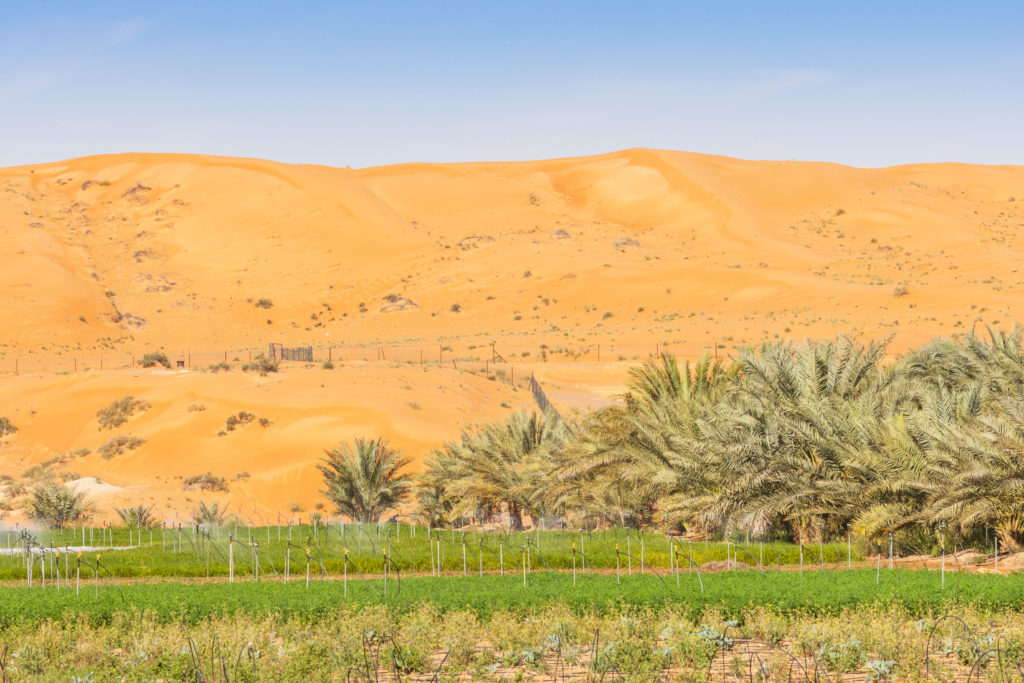Desert farming has existed for thousands of years, but one center in Dubai has created desert farming equipped to handle rising temperatures and extreme weather events. While these climate change-induced factors tend to make farming difficult and disrupt food distribution, Dubai’s International Center of Biosaline Agriculture (ICBA) is creating solutions to boost local food production in the driest and hottest conditions.
Contending with limited freshwater, intense heat and sandy soil, farmers in Dubai can’t go about farming in the traditional sense. Instead, the ICBA has been growing and transplanting foods that thrive off saltwater since it was founded in 1999. The not-for-profit has amassed a collection of over 13,000 highly nutritious crops that can adapt to and survive in extreme weather conditions.
Working with the land’s resources, the crops can grow using seawater and brine from desalination projects. One such crop is quinoa, a non-traditional crop transplanted from the South American Andes. Five out of the 1,200 quinoa crops tested by ICBA scientists can grow in extreme conditions, and farmers in the Middle East and North Africa have already begun producing it.
Another lesser-known crop called Salicornia is also thriving in the desert. The plant was transplanted from the Southern US and requires saline water to grow, making it a versatile and adaptable crop for food production. The ICBA currently produces about 500 kilograms of Salicornia, as well as 200 kilograms of quinoa, for research and seeding.
Related: Will Saltwater Agriculture Technology Be the Future of Sustainable Farming?
Since human survival also depends upon protein, another UAE-based farm is providing fish for local supermarkets. Fish Farm, the UAE’s first organic aquaculture business, was founded in 2013 to grow a variety of foreign species and reduce the country’s reliance on imported produce. It supplies supermarkets with sustainably farmed fish at effective price points, without the negative environmental impacts of open-sea farming.
Fish Farm’s and the ICBA’s work is part of the global effort to find alternative ways to grow food, with total food demand expected to rise between 59 and 98 percent by 2050. Not to mention, the COVID-19 pandemic has also exposed new cracks in the global food supply chain and shed light on its fragility. Combined with the effects of climate change, more than one system will be needed to ensure food security going forward.
As of earlier this year, the World Food Programme of the United Nations estimated that 41 million people are on the brink of famine. And with only 11 percent of the world’s land surface used for farming, desert agriculture will be imperative in innovating against global food shortages. That’s why countries like the UAE, which are highly dependent on imports, are turning to technologies like vertical farming and smart greenhouses to increase local food production.
The efforts of the ICBA and Fish Farm will not only help improve local food production but can also be leveraged by governments to prepare for the future. It is becoming more and more important to adapt to sustainably-grown food to adapt to inevitable rising temperatures. Faster innovation in desert farming is one of many crucial solutions.












Join or login to leave a comment
JOIN LOGIN